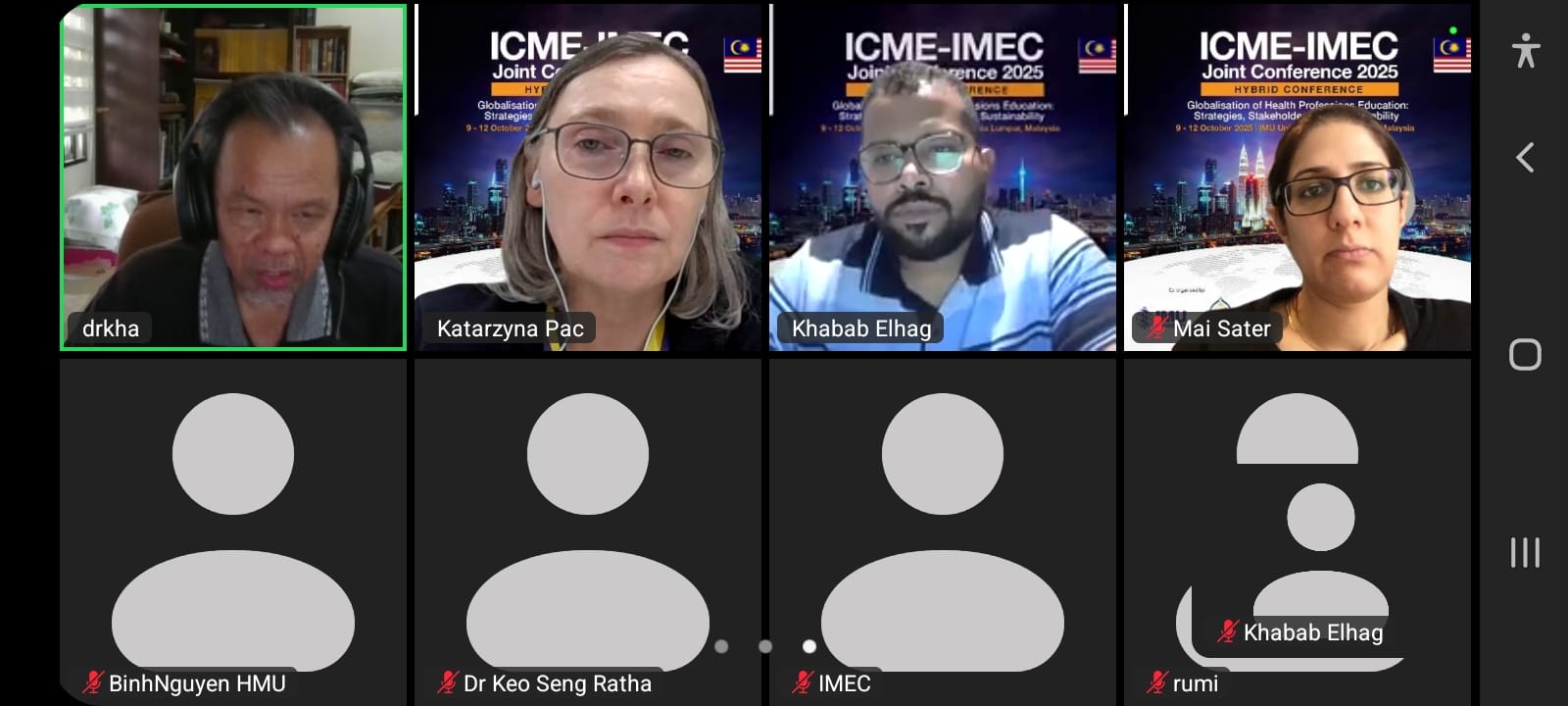
Formation of "Community of Practice for Quality Circles in Health Education" Announced AGU Leads Dialogue on Fostering Student Engagement in Health Education at ICME–IMEC 2025 Conference
Arabian Gulf University
12 Oct, 2025
Arabian Gulf University (AGU), represented by its College of Medicine and Medical Sciences, participated in the International Medical Education Conference (ICME–IMEC) 2025, one of the most prominent global conferences in the field of medical education and healthcare professions.
As part of the pre-conference activities, Dr Mai Salah Yousuf Sater, Associate Professor of Biochemistry, and Mr Khabab Abdelmoneim Elsaid Elhag, Head of the Quality Assurance and Accreditation Unit at the College of Medicine and Medical Sciences, presented an interactive online workshop titled: "Fostering Student Engagement in Health Education through Quality Circles."
The workshop highlighted the concept of Quality Circles as an effective tool to enhance student participation in the processes of continuous improvement and academic decision-making, based on the Japanese "Kaizen" philosophy of sustainable development.
Participants from various countries discussed the main obstacles to student engagement, such as limited feedback channels, academic pressure, and institutional culture, using interactive tools like Slido polls, Zoom breakout rooms, and AI-supported thinking activities.
It is noteworthy that conference this year was held under the theme, "Globalisation of Health Professions Education: Strategies, Stakeholders, and Sustainability." The conference featured participation from leading global universities and institutions, including the International Medical University (IMU) in Malaysia and Riphah International University in Pakistan, in collaboration with the World Federation for Medical Education (WFME) and several other international academic bodies.
Commenting on their participation, Mr Elhag explained that Quality Circles represent a paradigm shift in student engagement, as they give students an influential voice in improving the educational process. He pointed to the "Quality Voices" initiative launched by AGU, which has contributed to increasing student participation rates in academic evaluations and enhancing two-way transparency between students and faculty members.
For her part, Dr Sater stressed that genuine engagement is not limited to attendance or classroom interaction, but also includes fostering scientific curiosity, reflective thinking, and a sense of shared responsibility for the learning process.
She said: "When students feel that their voices make a real difference in the development of programmes and curricula, their engagement transforms from a formal obligation into a substantive participation driven by conviction and a desire to contribute."
She added that the Quality Circles model creates a safe and structured environment for constructive dialogue between students and faculty members, aligning with the standards of the WFME and ISO 21001:2018, both of which underscore participatory governance and a learner-centred approach.
The workshop witnessed broad international participation, reflecting the growing pioneering role of AGU in disseminating a culture of quality and innovation in medical education. Participants praised the workshop's evidence-based design, innovative interactive approach, and the use of AI technologies for analysis and reflection, describing the experience as "an inspiring model for international collaboration and enhancing student engagement." The workshop's outcomes aligned with the United Nations' fourth Sustainable Development Goal (SDG 4: Quality Education), which focuses on ensuring inclusive and equitable quality education and promoting lifelong learning opportunities for all.
At the conclusion of the workshop, AGU announced the establishment of the "Community of Practice for Quality Circles in Health Education" supervised by the university's Quality Assurance and Strategic Planning Centre. This community will serve as a global platform for the exchange of knowledge and experiences among academics and students, with the aim of developing sustainable initiatives to enhance engagement and continuous development in health education institutions.
